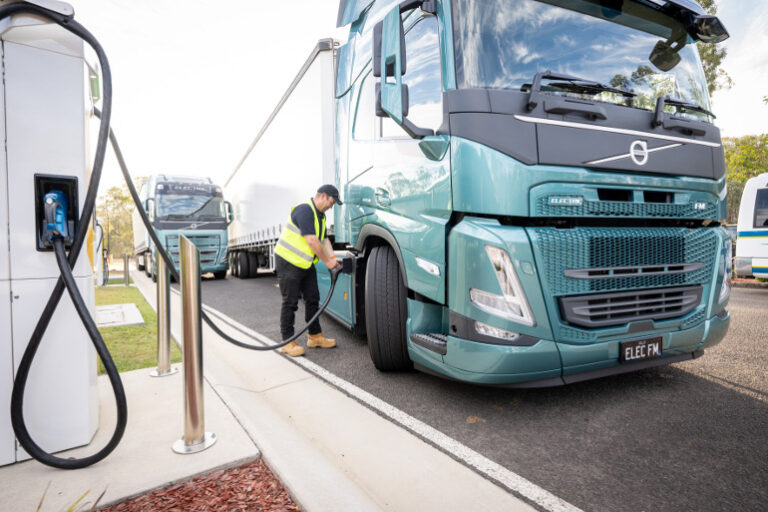Earlier this year Volvo Trucks launched their Heavy Duty electric truck range have been rolling them out to customers (DHL, Australia Post, ACT Emergency Services, GEODIS and Team Global Express) keen to be first movers in the race to reduce transport CO2 emissions.
After much work with Federal and State Governments, Volvo had a major win with the Victorian Government which announced a permanent low/zero emissions road network. The Low/Zero Emission Heavy Vehicle (LZEHV) access map was developed to simplify the implementation of LZEH vehicles on Victorian roads.
The new network will allow Volvo heavy-duty electric trucks to operate under a pre-approved, three- year permit with a 7.5-ton steer axle weight concession on these routes. As an Australian first, Victoria is the first state or territory to make permanent moves to open the road network to LZEHVs rather than announcing a trial.
As the only manufacturer to offer a full range of electric heavy vehicles, Volvo Trucks Australia has been leading calls for the weight concessions for zero-emissions heavy vehicles to facilitate the adoption rate needed to meet Paris Agreement emissions targets.
“We’ve been very clear that without legislative changes such as these, we won’t as an industry meet the emissions targets that we are all working towards,” says Martin Merrick, President and CEO of Volvo Group Australia.
“I applaud the commitment shown by the Victorian Government by taking these steps. We’ve made our commitment to both industry and society that we will be at the forefront of zero-emissions transport, and I’m heartened to see government taking steps along this journey as well.”
At a launch event prior to the 2023 Brisbane Truck Show, Merrick told Fleet News Group that government support and legislation changes would be needed if Australia had any chance of reducing transport emissions. And, if the changes were made, Volvo would commit to building electric trucks in Brisbane.
“I need to be clear on this, the barrier we have right now is legislation. It is our intention to build these trucks here by 2027,” stated Merrick. “If we don’t get legislation changes, then we won’t meet our targets (for reducing emissions).”






